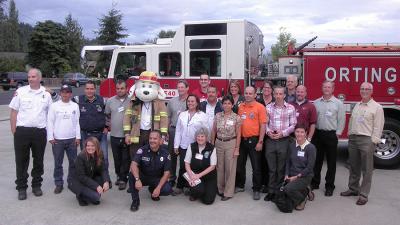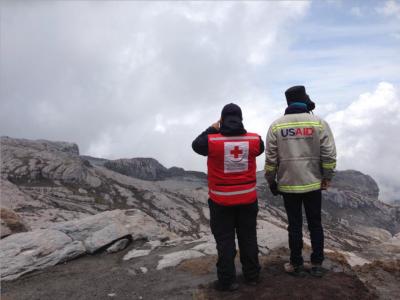

Without clear communication of hazards and risk, even the best science is insufficient to mitigate the threats from volcanic eruptions. Communications protocols are developed and refined in response to lessons learned at volcano crises around the world to ensure that emergency responders have the information they need to make wise decisions in time to make a difference. VDAP sponsors international exchanges where nonscientist emergency managers, first responders, and land managers from the U.S. visit the sites of volcano disasters and learn directly from their counterparts. Foreign counterparts, in turn, visit the United States and learn about the U.S. Incident Command System, multi-agency response plans, and how new monitoring tools are implemented into U.S. volcano observatory operations. Participants gain insights into the potential hazards and societal effects of volcanic events, and learn how to prepare for and respond to volcanic activity.
"When we went to Armero, something I'd seen and talked about, it really drove home the point of how similar the volcano of Mount Rainier is to the Nevado del Ruiz volcano and the hazards that both volcanoes share. And it really opened my eyes to the things the Colombians had done that worked really well and continue to this day to work really well, and the ways that we can improve our emergency systems to make sure that the tragedies that happened in Armero in 1985 are not replicated here at Mount Rainier." --U.S. participant in the U.S.-Colombia binational exchange